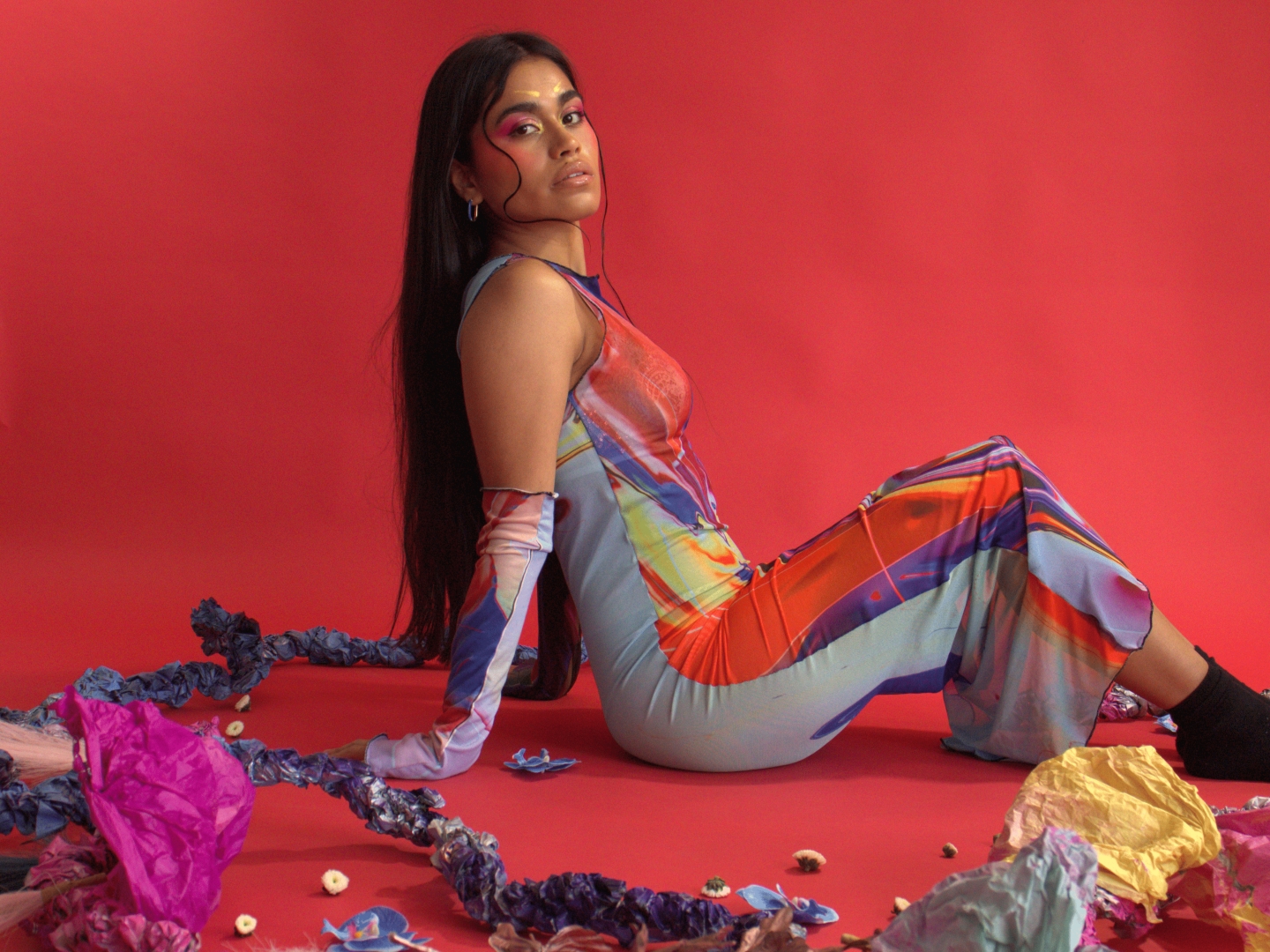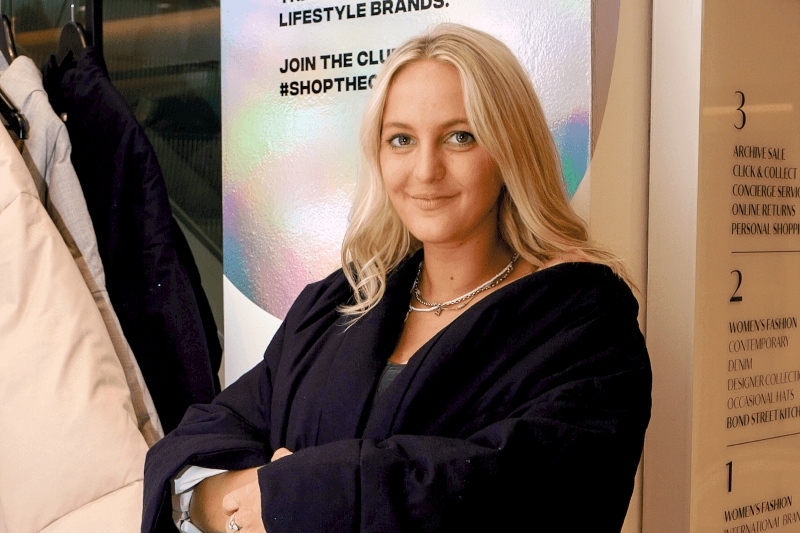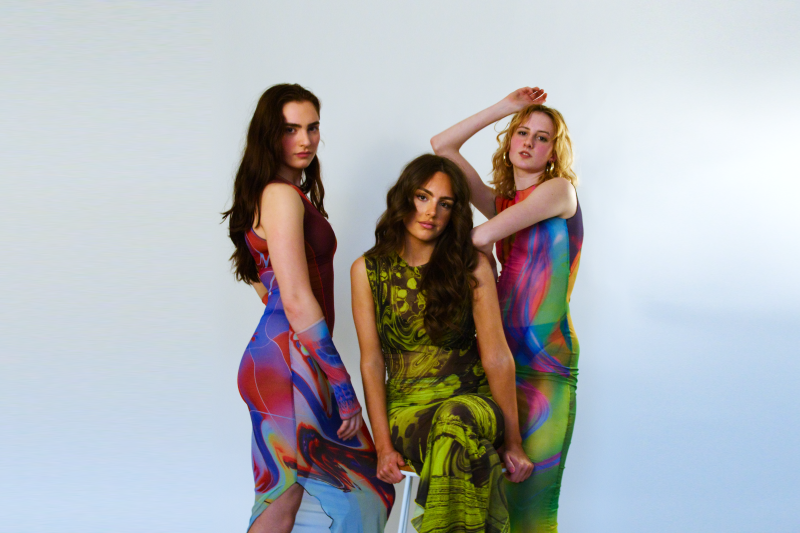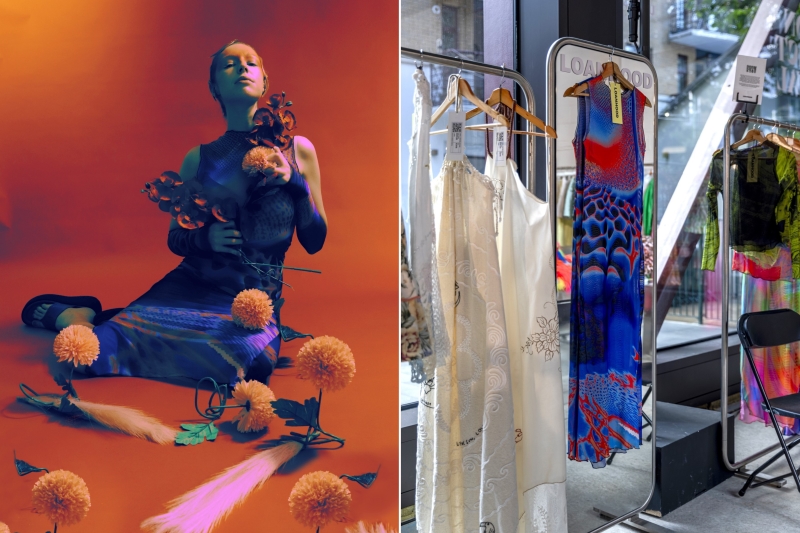
FOTU’s debut collection Boiling Point features a series of garments and accessories featuring fluid prints with striking hues reminiscent of the gradients seen on thermal contour graphs in weather forecasts (All photos: Fabric of the Universe)
Underground movements and subcultures have long held fashion as a sacred medium to express their ideas and personalities, and to make a stand against civil injustice and distress. The punks of the 1970s, poster children for teenage rebellion, coveted their spike-studded leather, chain accessories and military boots, made popular by brands like Vivienne Westwood, Tripp NYC and Dr Martens. In the 1990s, the gyaru (which translates into the slang term “gal”) style emerged in Japan, initiated by young girls and women retaliating against the country’s restrictive and conservative beauty standards by donning loud prints, brightly coloured hair and dark makeup.
These subgenres began not in major fashion houses, but with regular youths looking to make a statement with what they wore. Joining the global fray of young designers with something to say is Abigail Hodges, the London-based designer behind up-and-coming independent fashion label Fabric of the Universe (FOTU).
The seed for FOTU was planted during the 2022 European heatwave, the year’s deadliest meteorological occurrence that resulted in more than 20,000 heat-related health complications and deaths across the continent. “The harrowing realities of climate change left me feeling paralysed. Yet, I recognised the imperative to transform these emotions into a constructive, solution-oriented outlet,” says Hodges, 25, who studied philosophy and theology at St Peter’s College at the University of Oxford.
Her inner tumult gave rise to FOTU’s debut collection named Boiling Point — a series of garments and accessories featuring fluid prints with striking hues reminiscent of the gradients seen on thermal contour graphs in weather forecasts. It was a huge departure from the neutral tones and plain designs associated with sustainable clothing, and an avenue for the founder to “express [her] inner turmoil, which words struggled to convey”.
headshot_ldc.jpg

The spirited messages FOTU preaches are practised. The powermesh used is the product of recycled plastic bottles and the brand is currently expanding into recycled lycra and other eco-friendly materials. Each piece is stitched together with recycled thread and fabric scraps are repurposed for other projects and bespoke items.
Most impressively, the bright, psychedelic patterns are achieved through waterless sublimation printing, a feat realised in collaboration with Lemon Head Prints. “This innovative approach allows us to achieve vibrant colours without contributing to water waste,” Hodges explains. “Our commitment to sustainability is not just a principle but a practice that permeates every aspect of our clothing creation process.”
With FOTU’s eye-catching designs as the foundation, Hodges hopes to foster a coterie of eco-conscious individuals who resonate with the brand’s identity and mission, and urge them to express their opinions through their clothing choices. Many of her own loved ones and acquaintances work in non-governmental organisations and consulting professions that champion sustainability. Her work stands as one of many platforms to spread the word and spark overdue discourse.
“The weight of the climate crisis and the experience of eco grief have become a substantial source of stress and worry. The emotional toll of these issues has fuelled my determination to channel these feelings into my work, using fashion as a medium to convey the urgency of environmental action and inspire change,” she says.
_1.18.4.png

This pluck and tenacity is the hallmark of a subversive younger generation desperate to rectify crumbling social and environmental imbalances. And so it is no surprise that FOTU’s presence is most known among London’s clandestine music milieu, known for producing newfangled electronic beats and housing outspoken creators. The domain’s artists and supporters — who make up the majority of FOTU’s clientele — and its avant-garde nature have had a significant influence on Hodges who, like many young people, looks to music to cope with feelings of anxiety and desolation.
“[Music] serves as a sanctuary where I can shed anxieties and fears, immersing myself in new, visually stimulating worlds. Many of my design ideas originate during moments when I’m lost in the mesmerising sounds of fast-paced electronic mixes, illustrating the intimate connection between music and our creations,” she elaborates.
FOTU is also her way of giving back to a community that has enabled her to experiment and flourish as a creative. Donned by a DJ on stage or by the audience, her designs are meant to empower wearers to express their true, unfiltered selves in a secure space. As she says, “It’s not just about clothing — it’s about channelling the essence of this culture into wearable art so that when people wear them they can hold a bit of this incredible boldness and power.”
Those who run in unorthodox social circles will know that these groups harbour many from marginalised bodies, including the neurodiverse. Staying in tune with Hodges’ zeal for nourishing those around her, her desire to channel intense emotions into art has also led to holding workshops for these people, who are near and dear to the artist’s heart, as she herself has dyslexia and dyspraxia.
fotu.jpg

The workshops offer attendants a platform to “express their fears, anxieties and hopes in a supportive and empathetic environment” and find methods to navigate mental health challenges in the face of the unease brought by climate change. “FOTU aims to provide participants with tools and strategies to cope with climate anxiety, fostering a sense of resilience and community in the face of such a pressing global challenge,” she says.
As youths, namely Gen Z, enter the early stages of adulthood and begin to explore their passions and what life has to offer, there is widespread awareness and desire to take action against decades-old issues that threaten their quality of life. The ability to not only enact confrontation but to do so in visionary and poetic forms, that in the past were practised by only the most vociferous of progressivists, has now become the norm for the new generation of leaders and movers.
At the core, FOTU and its founder represent this electrifying, unprecedented era in which one’s craft embodies a pointed subject. For Hodges, there is still much to explore — innovation is a never-ending process, after all. What will remain, however, is an undying devotion to ethical and sincere entrepreneurial practices, and a hunger to do things differently.
This article first appeared on Sept 18, 2023 in The Edge Malaysia.


